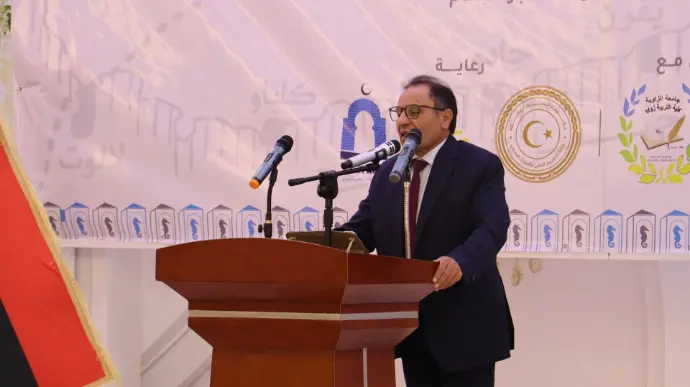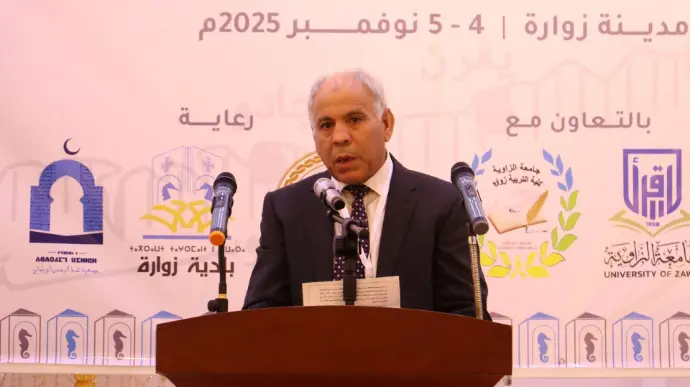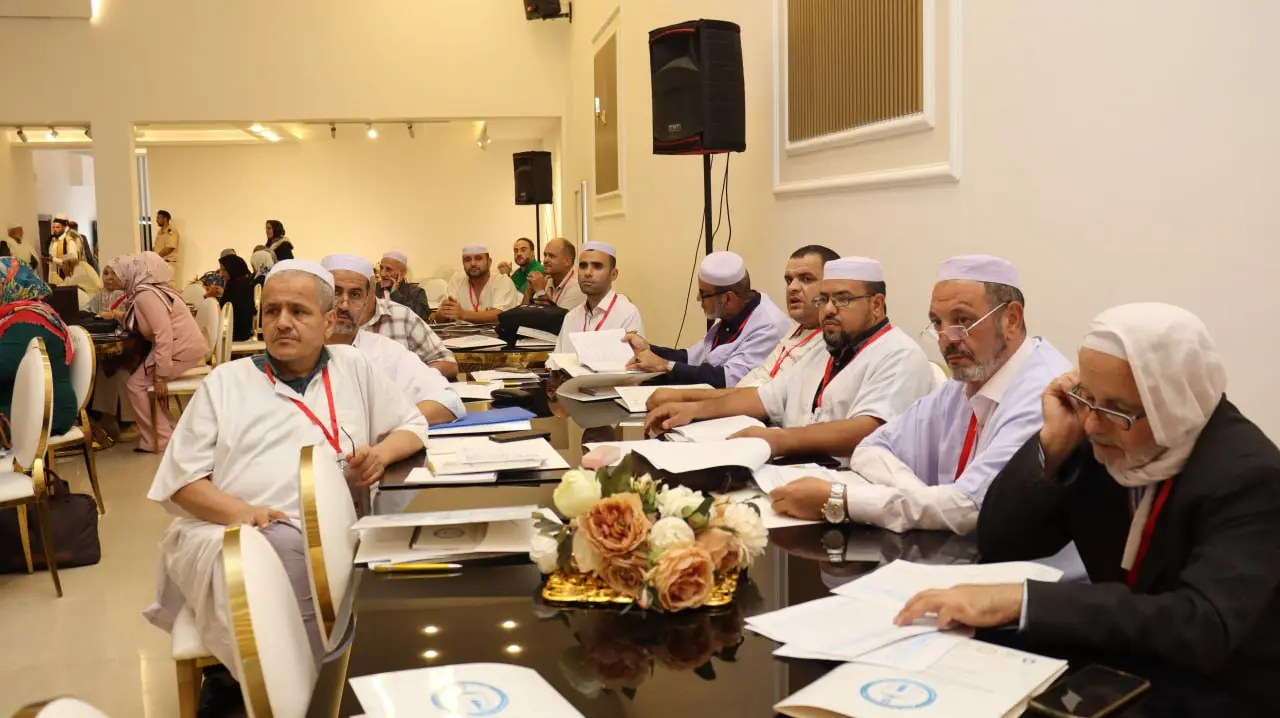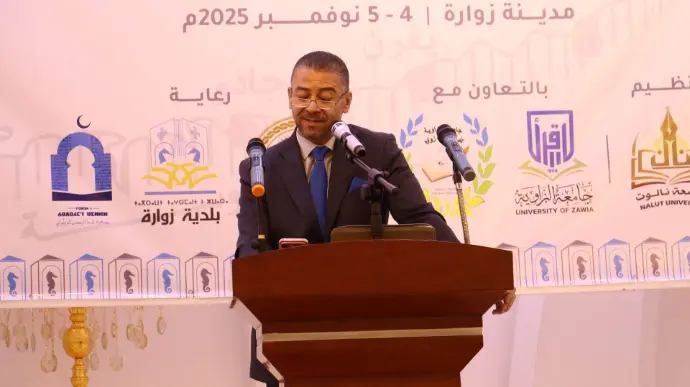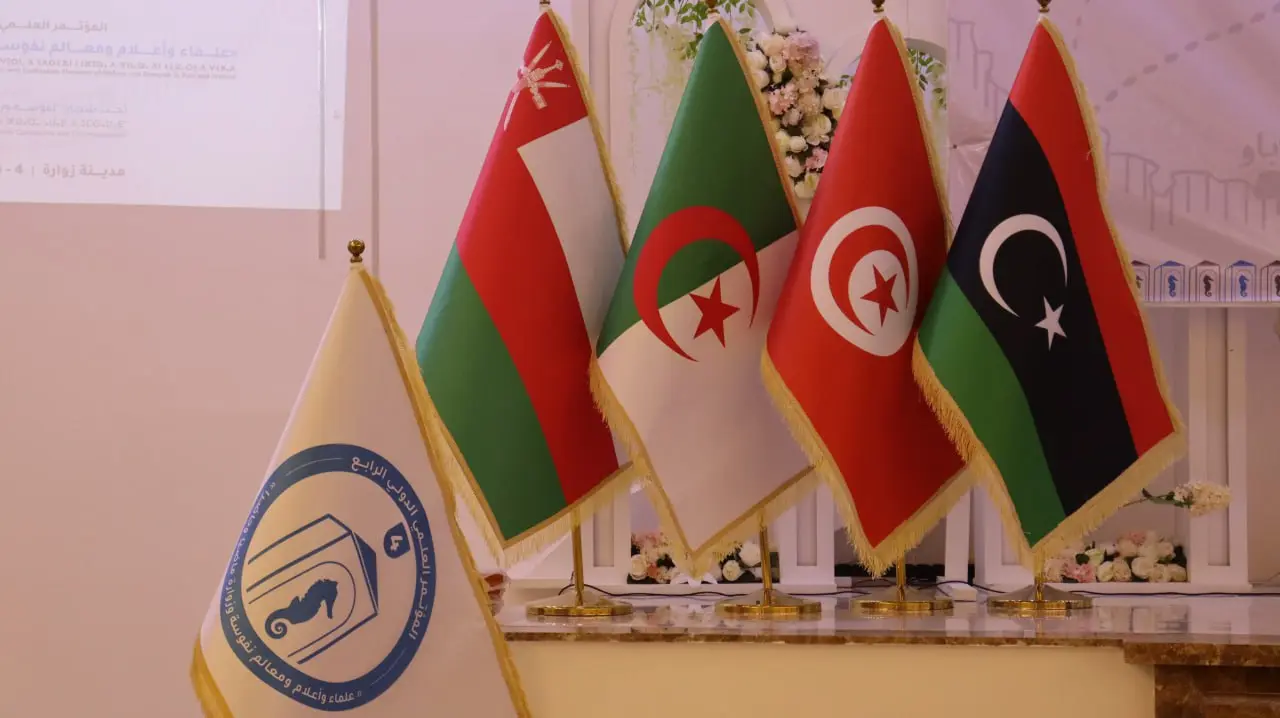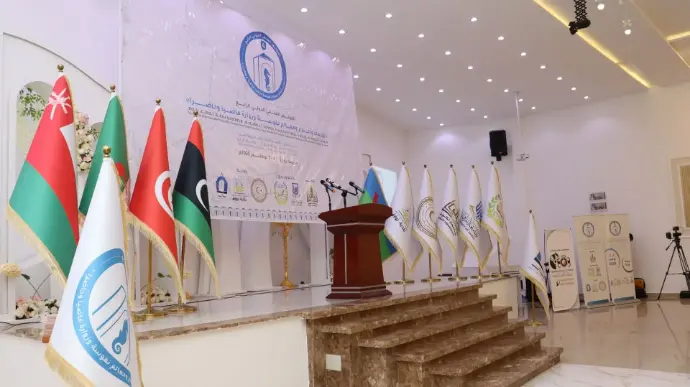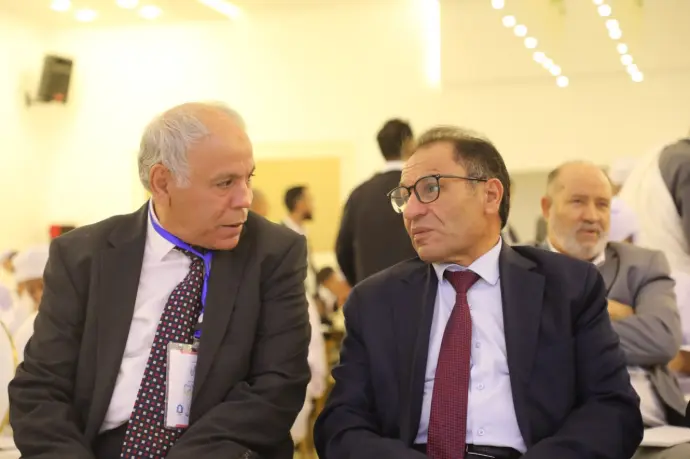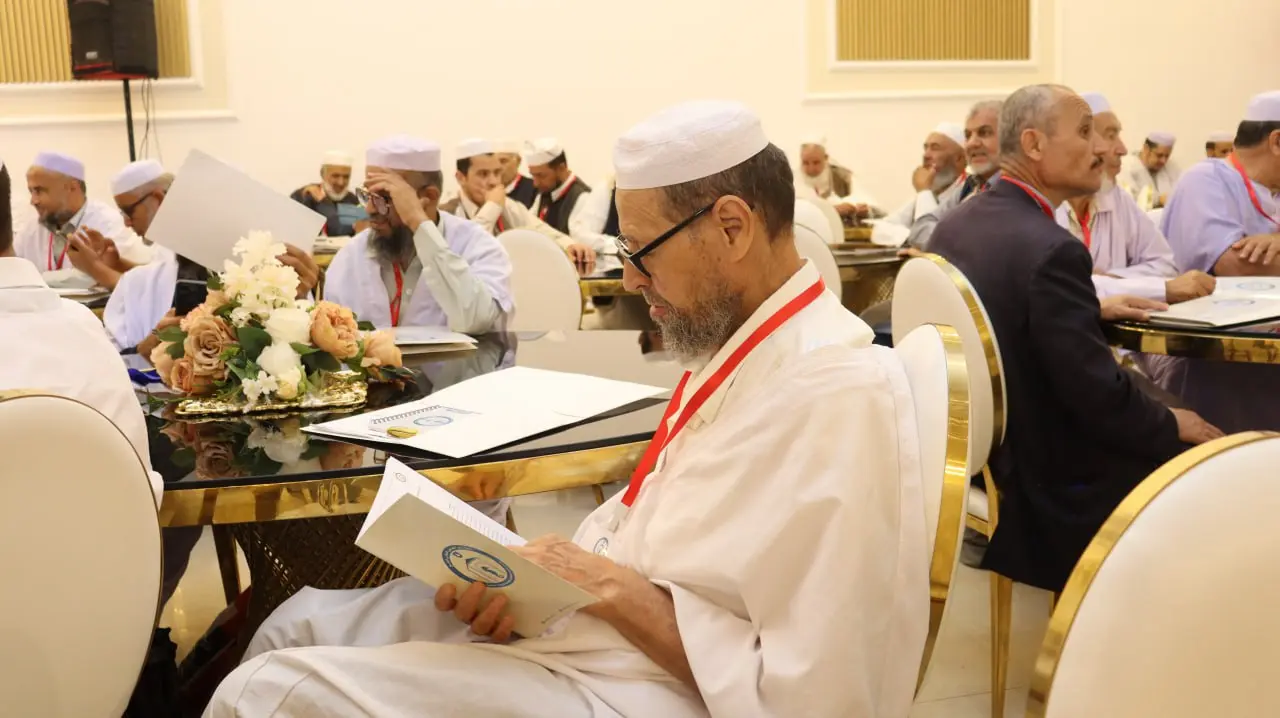The fourth international scientific conference, titled "Scholars, Figures, and Landmarks of Nefusa and Zuwara: Past and Present," commenced this morning, Tuesday, November 4, 2025, in the city of Zuwara, under the slogan "Nefusa and Zuwara: Connection and Communication."
The conference is organized by Nalut University, under the sponsorship of the Ministry of Higher Education and Scientific Research and the Municipality of Zuwara, with the generous hosting of the Abdul Rahman Al-Waluli Association for Authenticity and Communication in Zuwara.
A distinguished group of professors, experts, and scholars from various Libyan and Arab universities, scientific centers, institutions, organizations, and higher institutes from Libya, Tunisia, Algeria, and the Sultanate of Oman will participate in this conference.
Attendees at the opening ceremony of the conference included:
• His Excellency the Minister of Higher Education and Scientific Research, Dr. Imran Al-Qeib, and several department directors at the ministry
• Mayor of Zuwara.
• Her Excellency the Minister of State for Women's Affairs in the Government of National Unity
• President of Nalut University, its Vice President for Academic Affairs, and the Secretary General of the University.
• Former President of the National Conference, Mr. Nuri Abusuhmein
• President of Al-Zawiya University and its Vice President for Academic Affairs.
• President of Gharian University and its Vice President for Academic Affairs.
• Dean of the Faculty of Education, Zuwara, Al-Zawiya University
• A number of department directors at Nalut University
• President and members of the Abdul Rahman Al-Walouli Association for Authenticity and Communication in Zuwara.
• President and members of the Al-Istiqama Foundation in Nalut
• Members of the Zuwara Municipal Council and city elders.
• A gathering of interested individuals from the cities of Jebel Nafusa and various Libyan, Tunisian, Algerian, and Omani cities
The conference addresses the following topics:
Axis One: Scholars and Figures
• Examples of scholars and prominent figures of Libya in general.
• The concept of scholars, figures, landmarks, and the fields of their creativity.
• The role of scholars and figures from Jabal Nafusa and Zuwara in communication between the East and the West.
• The approach of the scholars and figures of Jabal Nafusa and Zuwara in parallel critical writing.
• The scientific output of the scholars of Jabal Nafusa and Zuwara (in all sciences).
• The scientific relationship between the mountain scholars, Zuwara, and others.
Axis Two: History, Geography, and Development
• Nafusa Mountain and Zuwara throughout history.
• History and Geography of the Nafusa Mountains and Zuwara.
• The desired development for the cities of Jebel Nafusa and Zuwara.
Axis Three: Jihad, Biographies, and Narratives
• The role of the men of Nefusa and Zuwara and their solidarity with the men of Libya during the Italian colonization.
• Famous Scholars of Jabal Nafusa and Zuwara (Biographies and Translations).
• The journey of some scholars from Jabal Nafusa and Zuwara to the neighboring cities and towns.
The conference aims to achieve the following:
1. Understanding the succession of historical stages of Jebel Nafusa and Zuwara.
2. Familiarity with the characteristics of the heritage of Nefusa and Zwara, both past and present.
3. The introduction to the biographies and translations of the scholars of Libya in general, and of Nefusa and Zuwara in particular, and their classifications.
4. Educating generations about the heritage of Nefusa and Zuwara, drawing from it, and developing it.
5. Recognizing aspects of the cultural and scientific history of Nefusa and Zuwara.
6. Introducing the material heritage of Nacousa and Zuwara and explaining its value in the present and future.
7. Directing the attention of generations to an important part of Libya's heritage and its history in the past and present.
Participating entities in the conference
First/ Universities (number 17):
1. University of Benghazi.
2. University of Tripoli.
3. Misrata University.
4. Muhammad bin Ali al-Senussi University (Al-Bayda).
5. Omar Al-Mukhtar University.
6. Al-Zawiya University.
7. Nalut University.
8. Al-Jafara University (Libya).
9. University of Bani Walid.
10. Al-Zaytuna University (Tarhuna).
11. Al-Asmariya University (Zliten).
12. Nizwa University (Oman).
13. Sultan Qaboos University (Oman).
14. Ghardaïa University (Algeria).
15. University of Algiers.
16. Sheikh Arab Tabsi University (Algeria).
17. Al-Margab University.
Secondly/ Independent Colleges (Number 5):
1. College of Sharia Sciences (Muscat, Oman).
2. Faculty of Human and Social Sciences (Tunisia).
3. Islamic Call College (Tripoli).
4. Al-Ridwan College (Algeria).
5. College of Sharia Studies (Al-Safaa Library of Sheikh Muhammad Ali Al-Dabouz, Algeria).
Third/ Academy (Number 1):
1. The Libyan Academy for Graduate Studies.
Fourth/ Institutes (Number 3):
1. Uncle Said Institute for Islamic and Civilizational Studies (Algeria).
2. The Higher Institute of Human and Social Sciences (Algeria).
3. The Higher Institute of Arts and Languages (Algeria).
Fifth/ Scientific Centers (Number 2):
1. The Khalil bin Ahmad Al-Farahidi Center for Arabic and Human Studies (Algeria).
2. Center for Research and Studies in Dialogue of Civilizations and Comparative Religions (Sousse, Tunisia).
Sixth/ Independent Researchers (number 10).
